Barnard College Collections
Barnard Archives and Special Collections documents the history of Barnard College from its founding in 1889 to the present day. Records of special interest include a large collection of student scrapbooks and publications, which document the clubs, political activism, and intimate lives of Barnard students; the personal papers of Barnard’s most important early Dean, who lived with other women, and Black feminist author Ntozake Shange; and the papers of several activist groups. The Special Collections are especially strong in the areas of feminism, women’s, gender, and sexuality studies, zines, and the history of dance. The Barnard Center for Research on Women has also developed an extensive digital record of its activities, including its annual Scholar & Feminist conference.
Barnard College Archives
Location: Milstein Center for Teaching and Learning (3009 Broadway), Room 423
Research Hours: Currently closed until further notice; Digital Collections available online.
For more information: consult Barnard College Archives Services and Policies or contact [email protected].
DIGITAL COLLECTIONS
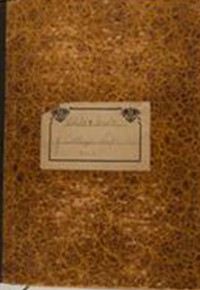
Student Scrapbooks
“The Alum Scrapbook Collection consists of scrapbooks, personal diaries, and class diaries dating from 1892-1913. These items, donated by Barnard alums, depict life at Barnard and illuminate the history of dating, crushing, women's rights, religious discrimination, clubs, sports, and Greek life through the experiences of young college women. The scrapbooks also include theater and commencement programs, ribbons, newspaper clippings, and photographs.” Of particular interest are descriptions of crushing, or “smashing,” in which female students developed strong infatuations and courted their female peers.
For more information on crushing among young women, see the Vassar Library’s LGBT Studies page on “Smashing.”

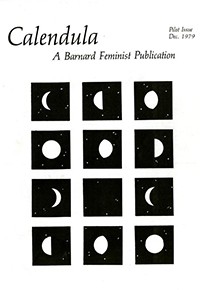
Student Publications
This collection includes digital scans of fifteen periodicals published by Barnard students from 1938-2008, addressing art, literature, orientation for incoming students, politics, and campus activism. The digital collection contains one explicitly LGBTQ publication, Qzine (2005, one issue), containing political and personal articles, poems, comics, and photos. Other titles of interest include Proxy (2006, one issue), featuring “writing on race, gender, identity, and politics at Barnard College and Columbia University,” and Calendula: A Barnard Feminist Publication (1979-80; two issues digitized out of five in Barnard’s archival holdings), including essays, a feminist directory, calendars of events, reviews, and poems.
PERSONAL PAPERS

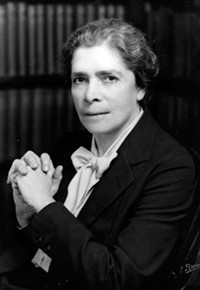
Virginia Gildersleeve Papers
Virginia Gildersleeve (1877-1965) served as Dean of Barnard College from 1911-1947 and promoted women in higher education and international cooperation. After earning degrees from Barnard and Columbia, she taught English at both schools, was appointed Dean of Barnard and Adviser to Women Graduate Students at Columbia, and attended the 1945 UN Conference on International Organization as the sole female US delegate. She never married and lived her life in partnerships with women; she and her longtime companion Professor Caroline Spurgeon founded the International Federation of University Women in 1919. The collection includes correspondence, writings by or about her, family materials, and memorabilia, awards, and ephemera.

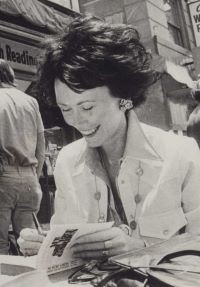
Nancy Friday Papers
Nancy Friday (1933-2017) was an author and pop psychologist active from the early 1970s into the 2000s, whose work dealt with women’s sexuality, gender roles, and family dynamics. She was known for her unabashed discussion of challenging topics, especially taboo sexual fantasies, and her insistence on showcasing women as autonomous sexual beings; Friday often faced backlash for her writing from feminists and conservatives alike. Most of the materials in the collection cover Friday's adult and professional life from 1970-2000s, including hundreds of letters sent to Friday about sexual fantasies (some of which Friday reprinted in her books), among other personal and professional materials such as correspondence with publishing houses, contracts, and recorded interviews.

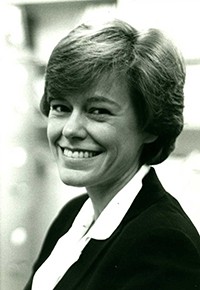
Rosalind Rosenberg Papers
Rosalind Rosenberg (b. 1946) taught at Barnard College and has researched the social and legal history of American women. She is best known for her writings on the roots of feminism, women in the twentieth century, and civil rights activist Pauli Murray, as well as for her testimony in an employment sex discrimination case involving Sears Roebuck and Company. The collection (c. 1880s–c. 2000s) consists primarily of papers related to her 2006 book Changing the Subject: How the Women of Columbia Shaped the Way We Think About Sex and Politics, including research files on policies, administrators, professors, and alumni of Columbia and Barnard, and debates and activism around the role of women in the universities.

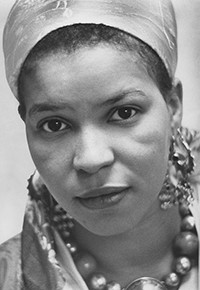
Ntozake Shange Papers
Ntozake Shange (1948-2018) wrote moving and stylistically innovative works of poetry, drama, and literature centering the experiences of Black women. Her 1976 genre-crossing “choreopoem” for colored girls who have considered suicide / when the rainbow is enuf integrated poetry, music, and performance art, and broke ground by addressing sexuality, relationships, rape, domestic violence, and abortion. The collection (1966-2017) includes copies of her published writings and partial manuscripts and typescripts; personal and business correspondence; diaries and daily planners dating from 1981-2010; books from Shange’s library with extensive personal annotations; digital materials including photos, videos, and writings; teaching materials; scrapbooks, art, awards, and ephemera.
ORGANIZATIONS

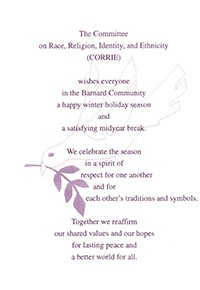
Barnard College Committee on Race, Religion, Identity, and Ethnicity
Barnard students, faculty, and staff founded the Committee on Race, Religion, Identity, and Ethnicity (CORRIE) in 1988 to catalyze action against discrimination in the college. Originally focusing on ethnicity, it soon expanded to address race and religion, and, in later years, sexual orientation. The group conducted initiatives to support students and faculty of color, forge a more inclusive curriculum, and instigate discussions on campus about identity and diversity until the creation of the Office of Multicultural Affairs. The collection includes the group’s meeting minutes, publicity materials, correspondence, and other items reflecting conversations and tensions around race, religion, and sexuality on campus.

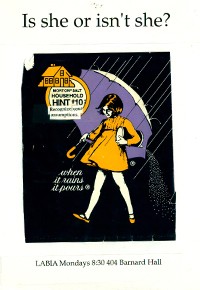
Lesbians and Bisexuals in Action (LABIA) Records
This collection consists of seven folders of records from the Barnard student organization Lesbians and Bisexuals in Action (LABIA), which existed from 1994-98. Materials include meeting minutes, posters and event memorabilia, budgets, and other items.

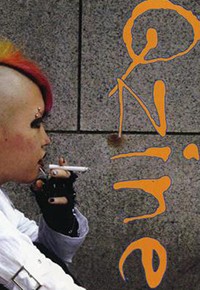
Qzine
This collection contains a 2005 issue of a Barnard student-written LGBTQ publication titled Qzine, which was sponsored by Q, the Barnard College Queer Collective. The issue includes political and personal articles, poems, comics, and photos. A digital scan of this Qzine issue can also be viewed online through the Barnard Digital Collections Student Publications website.

THEMATIC COLLECTIONS

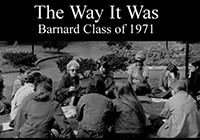
Class of 1971 Oral History Collection
The Class of 1971 Oral History Collection contains 39 oral history interviews with women who graduated from Barnard College in 1971. Narrators describe how they became Barnard students, their experiences on campus, and how their lives developed after graduation, touching on themes of “female friendship, feminism, political involvement during and after their time at Barnard College, issues of race and class among students at Barnard, and romance.” The collection contains transcripts, audio recordings, and video recording of interviews.

BARNARD ZINE COLLECTION
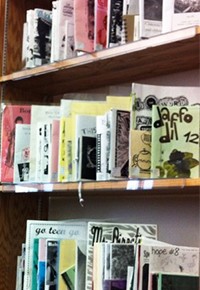
Barnard Zine Collection
Location: Milstein Center for Teaching and Learning (3009 Broadway), 2nd floor stacks [circulating collection], Room 423 [archives]
Research Hours: Monday-Friday, 10:30 am - 5:30 pm
For more information: contact Zine Librarian Jenna Freedman at [email protected]; for archival collections, contact [email protected].
Barnard has an extensive collection of zines, short for fanzine or magazine, a DIY (do-it-yourself) subculture self-publication usually made on paper and reproduced with a photocopier or printer. Zine creators are often motivated by a desire to share knowledge or experience with people in marginalized communities.
Barnard's zines are written by women (cis- and transgender) with an emphasis on zines by women of color. We collect zines on feminism and femme identity by people of all genders. The zines are personal and political publications on activism, anarchism, body image, third wave feminism, gender, parenting, queer community, riot grrl, sexual assault, trans experience, and other topics.
The Barnard Zine Collection offers many opportunities for exploring histories of gender and sexuality; for ideas to get started, consult the library’s page on zine scholarship and list of suggested research topics. To find zines on particular topics, perform an advanced search in CLIO, enter “zines” in the subject field, and then add any other desired search terms. You can also use these links to browse zines on the following topics: Lesbians, Bisexual women, Transgender people, Gender identity, Sex, Sexual minorities, Rape and Sexual Assault, Sexual behavior, Online dating, Non-monogamous relationships, Pornography, Sexual consent, and a variety of related topics.
In addition to the circulating zine library titles, the Barnard Archives and Special Collections also hold a variety of “zinester ephemera” archival collections with relevant material.
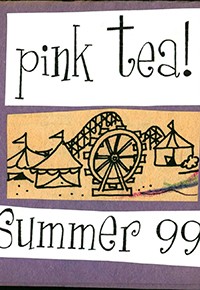
Keight Bergmann Zinester Ephemera Collection
Boston-area zine author Keight Bergman studied music at Berklee College, founded the Boston Free Dance Movement, and wrote a variety of zines including Riffrag (2005), In between (2002), Is the Men's Movement Going Anywhere? (c. 1999), Fancy (c. 1995-2000), Pink Tea (c. 1998), and Marmalade (c. 1994-1999). This collection (1998-2002) contains correspondence to Bergmann, pamphlets, invitations, photographs, a t-shirt, a glove and a cloth.

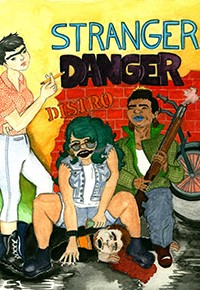
JB Brager Zinester Ephemera Collection
Writer and illustrator JB Brager holds a PhD in Women's and Gender Studies from Rutgers and is the author of the zines Doykeit, Femme a Barbe, and Long Distance, and editor of the zines Unconventional Wisdom and G.Nov: CTY 2010 The Graphic Novel Comics Zine. The collection (2012-2014) consists of five original posters, four of which advertise D.C. Zinefest along with one original untitled work.

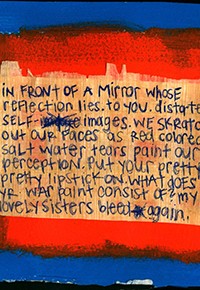
Julia Croon Zinester Ephemera Collection
Julia Croon has written a variety of personal zines including 19.keep hoping machine running (2012), Of all we could emotionally afford (2003), The day I learned to love my body (2000), and Declaration of children absent from heaven (2000), covering themes of gender, sexuality, love, and body image, and has worked on television shows such as Elementary, Girls and Shades of Blue as a script supervisor. This collection (c. 1990s) consists of twenty-one small, original art pieces cut into squares and rectangles and three empty and decorated plastic lunch boxes.

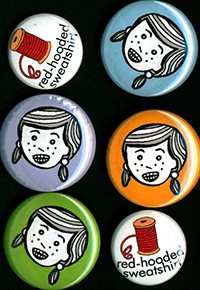
Marissa Falco Zinester Ephemera Collection
Oakland-based artist Marissa Falco is a longtime zine author and collector, whose titles include /nothing/, Red Hooded Sweatshirt, and Miss Sequential. The collection (1996-2015) includes buttons for Falco's zine Red Hooded Sweatshirt and the 2014 Chicago Zinefest, promotional postcards and flyers, bluejean magazine July/August 1998 issue, Record Store Day bag from 4/18/2015, correspondence from other zinesters, /nothing/ newsletter from 2013, New Museum alt youth media calendar of events from 9/6-11/5/1996, sticker designs.

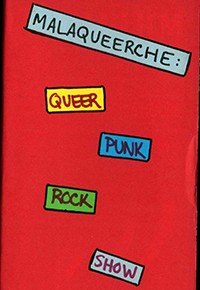
Sara Jaffe Zinester Ephemera Collection
Sara Jaffe is a musician and author active since the 1990s in feminist, alternative, and do-it-yourself communities. She performed with the band Erase Errata and authored the zine Manifixation as well as the anthology The Art of Touring and the novel Dryland. The ephemera collection includes political and music T-shirts along with videotapes chronicling the 1996 Portland Girl Convention (a feminist and alternative music festival) and Malaqueerche, a queer punk rock show.


Lauren Jade Martin Zinester Ephemera Collection
Lauren Jade Martin has written zines including Boredom Sucks, Quantify, Princess Charming, You Might As Well Live, and Hard as Nails, addressing themes ranging from the Riot Grrl and feminist movements to homophobia and pop culture. The collection (1993-2003) contains zine distro and music catalogs, DIY stickers, flyers, clippings, photographs, and t-shirts relating to punk, feminist, DIY, Riot Grrl, and zine culture.

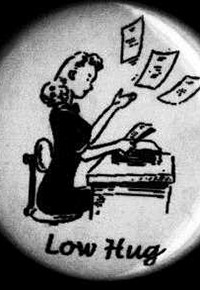
A.j. Michel Zinester Ephemera Collection
A.j. Michel runs the Syndicate Product zine distro and has authored zines including Low Hug, 12 Items or Less, and Speaking Phairly Revisted. This collection (2002-2013) includes buttons, pamphlets, and a map, program, and t-shirt relating to underground publishing and zine gatherings.

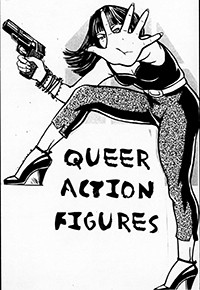
Laura Poll Zinester Ephemera Collection
Laura Poll works as an archivist at the Trenton Free Public Library in New Jersey. This collection consists of two bundles of images used to create the Queer Action Figures zines (c. 1994) and a plastic mustache and scorpion.

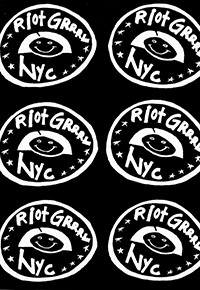
Cheryl Tapper Zinester Ephemera Collection
Cheryl Tapper authored the zines Ragdoll and Merge Disorder, which discussed sexual assault and consent, the Riot Grrl movement, body image and eating disorders, and sexual health. This collection (1993-1999) contains audio and video tapes depicting women in punk and zinester communities, flyers, articles, shirts, and other materials.

BARNARD CENTER FOR RESEARCH ON WOMEN
Barnard Center for Research on Women
Location: Milstein Center (40 Claremont Avenue), 6th Floor
For more information: contact [email protected].
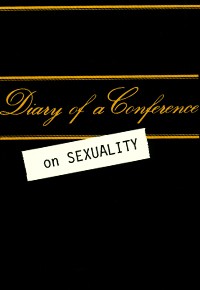
BCRW Digital Collections
In response to demand for Barnard to engage with the Women’s Liberation Movement, the college established the Barnard Women’s Center (later renamed The Barnard Center for Research on Women) in 1971. The Center has worked to support scholarship on women’s lives, linked campus and community initiatives in pursuit of social justice, and organized a yearly Scholar and Feminist Conference since 1974. This growing collection (1968-1998, bulk 1968-1978) currently includes over 700 digitized documents on the formation and early years of the Center, including meeting notes, correspondence, event programs, questionnaires, reports, and more, as well as materials related to the annual conference. Among the papers of special interest are those documenting the ninth Scholar and Feminist conference (1982), on Sexuality, which became a pivotal moment in the “feminist sex wars” of the 1980s.